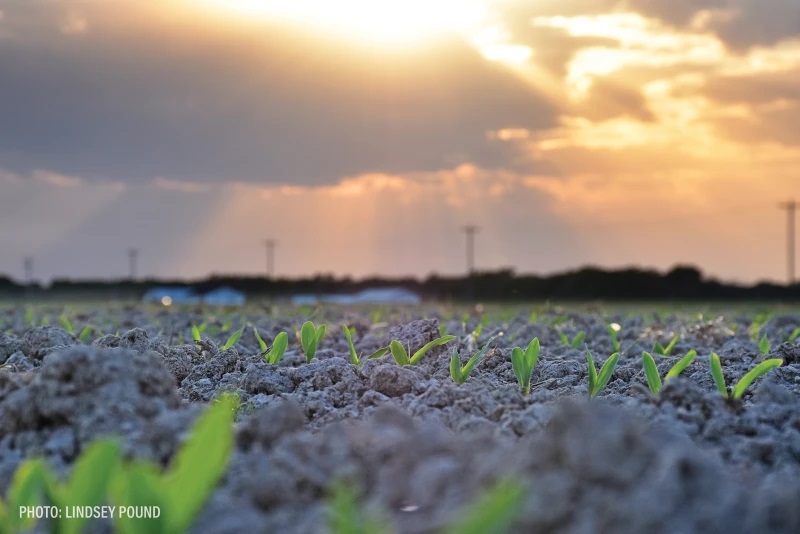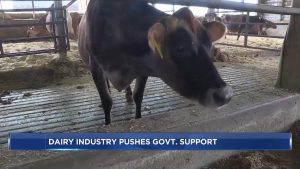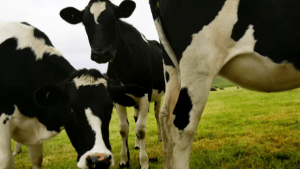
A chief concern is whether glyphosate will be targeted by the report, which is expected to be unveiled on Thursday. A number of farmers have voiced concerns collectively and individually this week.
With less than 24 hours to go before the specifics are expected to be unveiled in the Make America Healthy Again report, some members of the agricultural community wonder if they can take Robert F. Kennedy Jr. at his word.
Specifically, Kennedy, U.S. Health and Human Services Secretary, has said the report will not disparage the herbicide glyphosate, which many farmers across the country rely on for weed control.
“[In] the drafts that I’ve seen, there is not a single word in them that should worry the American farmer,” Kennedy said on Tuesday before a Senate Appropriations subcommittee.
“Tell that to a sugar producer who heard him say a few weeks ago, ‘sugar is poison,’” responded Jim Wiesemeyer, Washington policy analyst.
Wiesemeyer added that Kennedy’s previous statements, as well as his work as an environmental lawyer, have contributed to farmers’ ongoing angst over what will happen to glyphosate.
“[Kennedy has an impact on food, dietary guidelines, but he doesn’t have the jurisdiction over on the chemical side, so his reach is only so far,” Wiesemeyer said, during a conversation with AgriTalk host Chip Flory.
Get the complete details here:
Farmers Highlight Their Concerns
A number of farm groups have voiced concerns collectively and individually this week, leading up to the report’s release, which is the first report of the MAHA Commission President Donald Trump formed in February.
“We do anticipate, unfortunately, that pesticides will be a key piece of that report, and that much of it may be guided not by science but on a misinformation that exists across the countryside,” said Elizabeth Burns-Thompson, executive director of Modern Ag Alliance. The organization describes itself as a coalition of more than 100 agricultural organizations across the U.S.
“We are here today hoping to bring not only a concerted voice forward, but also making sure that the voice of farmers – those farmers that are actually out in the countryside using these products, depending upon these products – are brought to the forefront,” added Burns-Thompson during a media briefing hosted by her organization with two farmers sharing perspectives.
One of those farmers, Blake Hurst, said he considers glyphosate one of the most valuable crop production tools in his farming toolbox.
“I’ve read a number of news reports over the last few days saying that crop production products, and glyphosate in particular, may be targeted in the upcoming MAHA commission report. If that’s the case, it will be a terrible development for American agriculture,” said Hurst, who farms in northwest Missouri.
He estimates U.S. farmers lose about 40% of their crops to weeds and diseases annually, and that without the help of crop protection products, such as glyphosate, that number would double.
“As a corn and soybean farmer, I use [glyphosate] to control weeds, keep my yields up and my costs down,” Hurst said. “It’s reliable, affordable and effective. Without it, I’d be stuck using alternatives that don’t work as well and might not be as safe.”
Policy Decisions Impact Farmers And Consumers
Iowa farmer Scott Henry said he is concerned that if the MAHA Commission’s report drives future policy decisions, food prices will likely increase. “Instead of making America healthy again, we’ll be making America hungry again,” Henry shared during the Alliance media briefing.
Henry referenced how U.S. farmers are under financial pressure this year from low commodity prices, high input costs and trade uncertainty and must also contend with misinformation that some activists spread about food production practices.
“To have anti-ag activists who have never stepped foot on a farm or taken our perspective or the science into [consideration] … they’re getting away with impacting both farmers and consumers, and the impacts of that could be severe. Bottom line is this, without glyphosate, yields will drop, costs will rise, and higher prices will get passed on to the consumer,” Henry said.
More than 10 farm groups echoed Henry’s concerns in a joint statement earlier this week, calling for the Trump administration to consider the consequences of the MAHA report before it is finalized.
“…We have heard disturbing accounts that the commission report may suggest U.S. farmers are harming Americans through their production practices and ‘creating foods that [are] destroying our microbiome and bodies—leading directly to our chronic disease crisis.’ Nothing could be further from the truth,” the joint statement said.
It added, “Nutrition matters, health matters, and the confidence of consumers in the food supply matters tremendously. Such a conclusion would run counter to the scientific evidence and decades of findings from the Environmental Protection Agency.”
Participants in the joint statement included the American Soybean Association, National Corn Growers Association, National Association of Wheat Growers and the International Fresh Produce Association
Illinois farmer Steve Pitstick is more wary than worried about what the report will reveal. It is expected to be unveiled Thursday. He is planning for the worst and hoping for the best.
“I find it a stretch to believe it’s not going to impact us somehow,” Pitstick said during the AgriTalk Farmer Forum on Thursday. “But we’ll deal with it as it comes and try to do our best to talk up what we do in agriculture every day to the best of our ability for consumers, ourselves and our families.”
Hear more from Pitstick and ASA President Caleb Ragland, as they weigh in with their thoughts on MAHA:
You can now read the most important #news on #eDairyNews #Whatsapp channels!!!
🇺🇸 eDairy News INGLÊS: https://whatsapp.com/channel/0029VaKsjzGDTkJyIN6hcP1K

























